33+ Observation Examples to Download
Octopi are very smart marine animals that can utilize tools to achieve feats that are normally unachievable due to their limitations. We know this for a fact because marine biologists have researched and observed their usage of tools in the wild.
1. Peer Observation Template
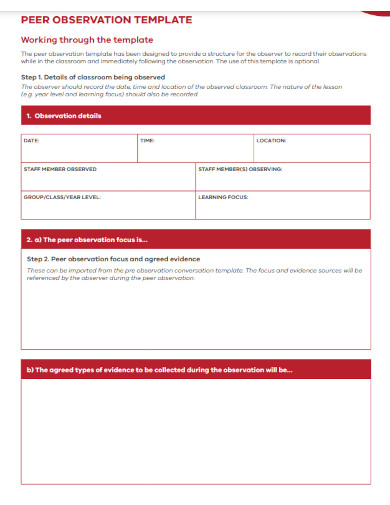
education.vic.gov.au
2. Step by Step Teacher Standards Observation Form
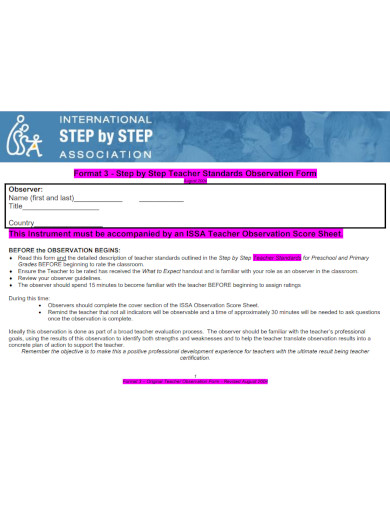
oecd.org
3. Teacher Accreditation Observation Report
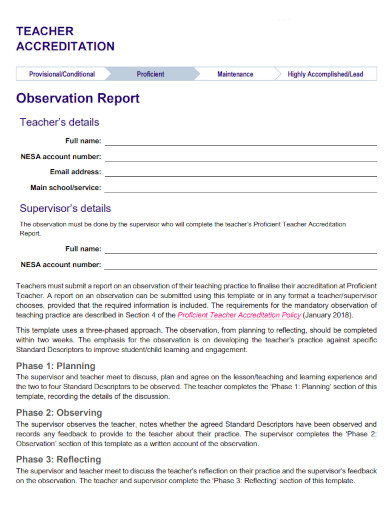
educationstandards.nsw.edu.au
4. Observation Template
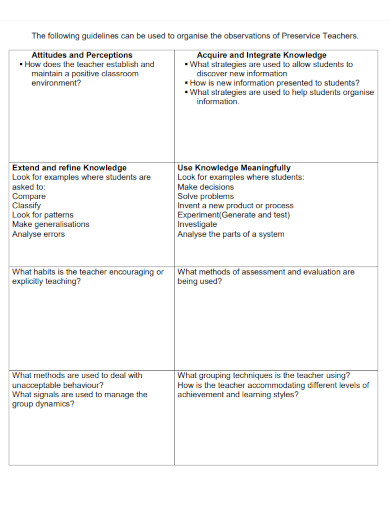
cdu.edu.au
5. Classroom Observation Checklist
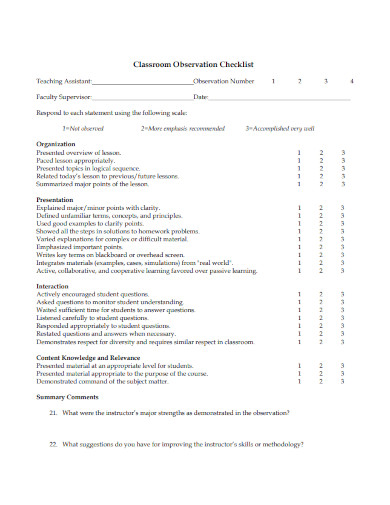
unl.edu
6. Lesson Observation Template
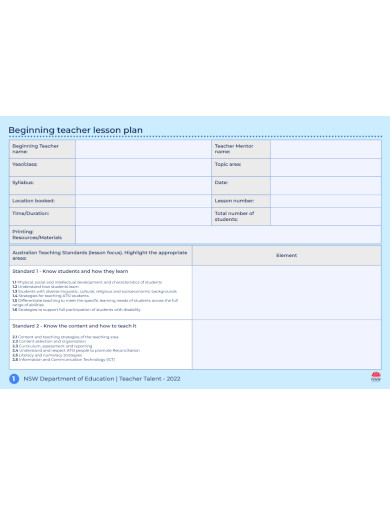
education.nsw.gov.au
7. Recording of Observation Template
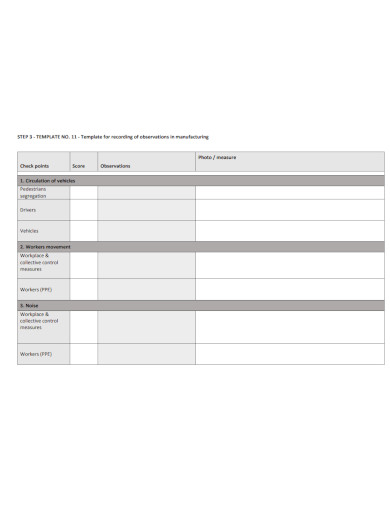
ilo.org
8. Observation Form Template
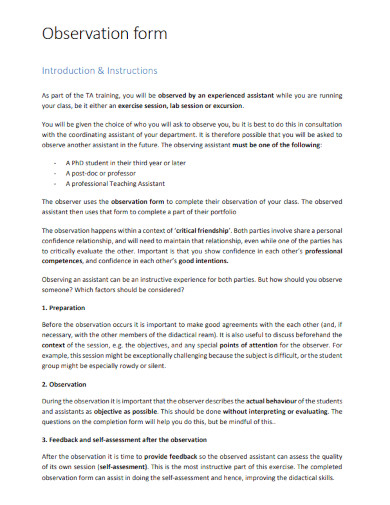
wet.kuleuven.be
9. Classroom Observation Form
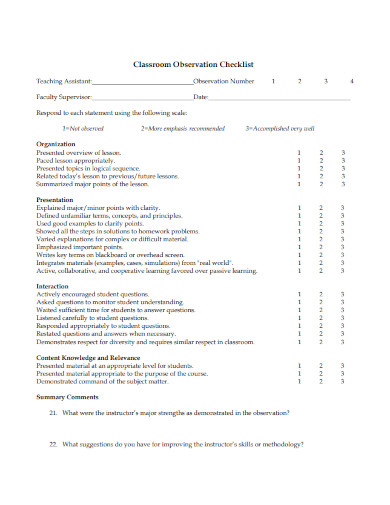
irp-cdn.multiscreensite.com
10. Completing Structured Observation Form
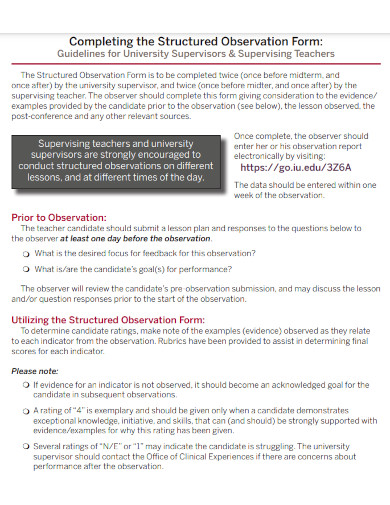
education.indiana.edu
11. Teaching Observation Form
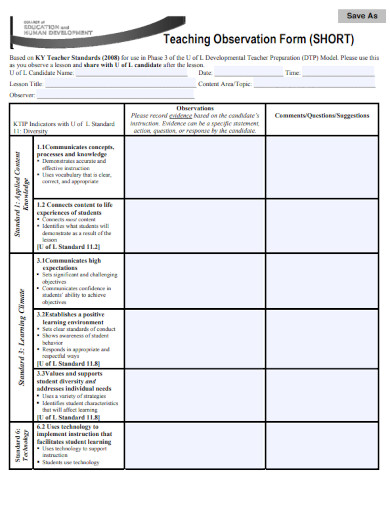
louisville.edu
12. Faculty Classroom Observation Form
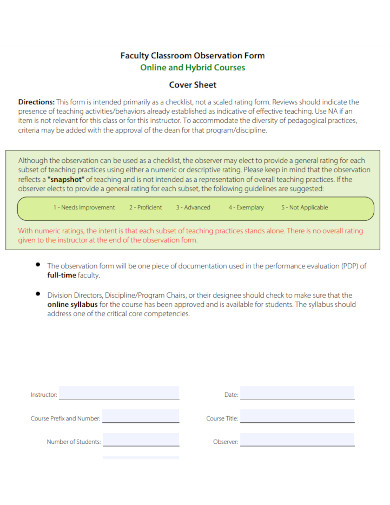
cpcc.edu
13. Student Observation Template
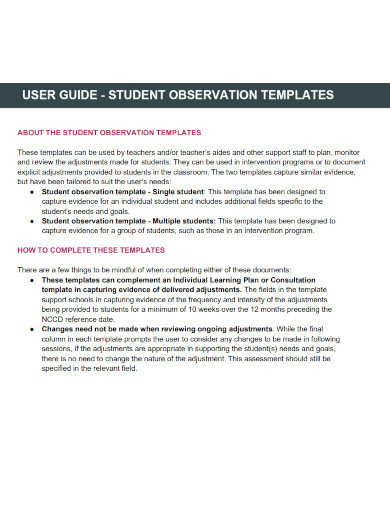
nccd.edu.au
14. Instructional Observation Checklist
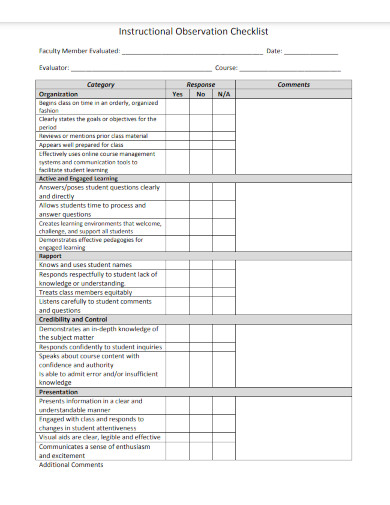
forms.humboldt.edu
15. Classroom Observation Template

trb.tas.gov.au
16. Meeting Observation Template
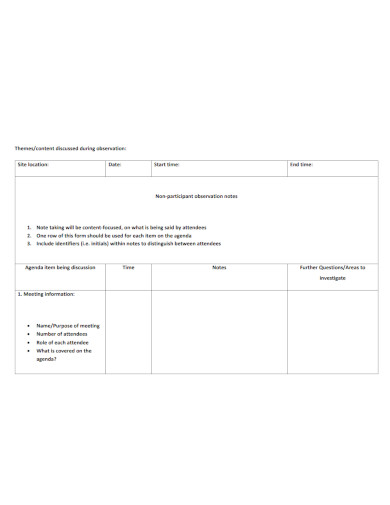
njl-admin.nihr.ac.uk
17. Direct Observation Template
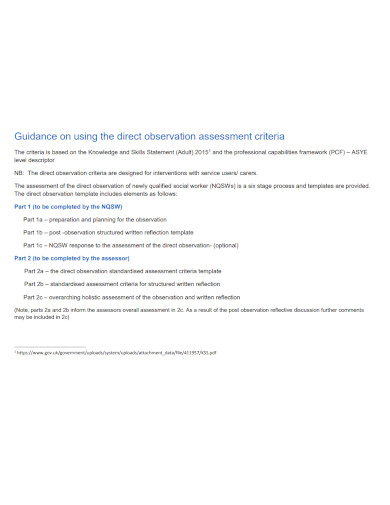
skillsforcare.org.uk
18. Online Teaching Observation Form
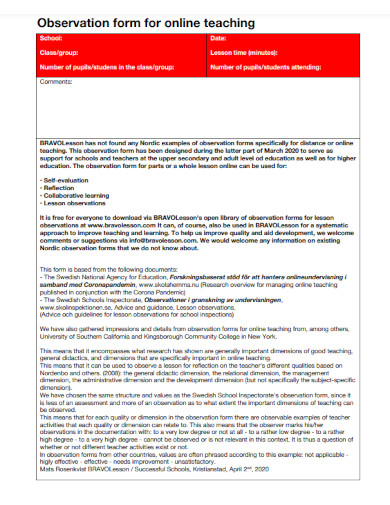
bravolesson.com
19. Board Meeting Observation Sheet
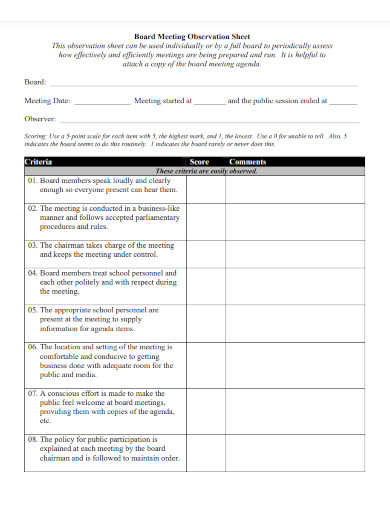
nyssba.org
20. Teaching Assistant Classroom Observation Sheet
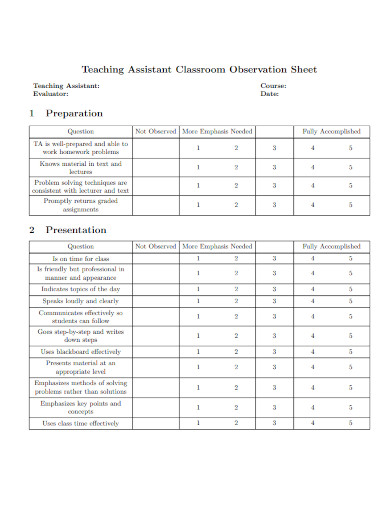
people.clas.ufl.edu
21. Informal Observation Form
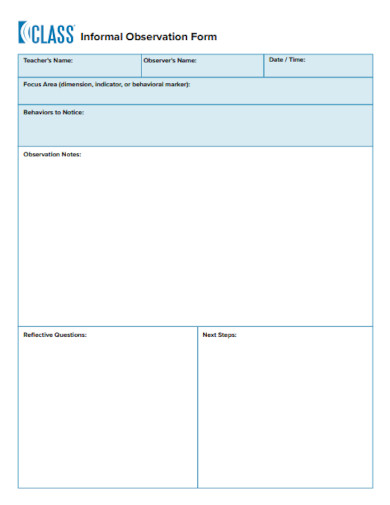
info.teachstone.com
22. Five Minute Observation Template
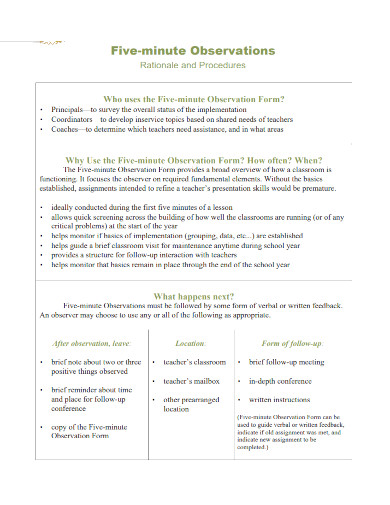
nifdi.org
23. Teaching and Learning Observation Form
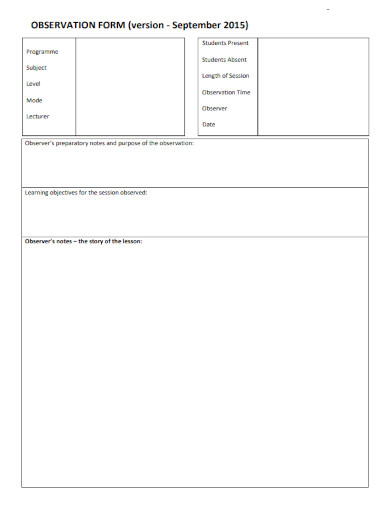
ucb.ac.uk
24. Teacher Driven Observation
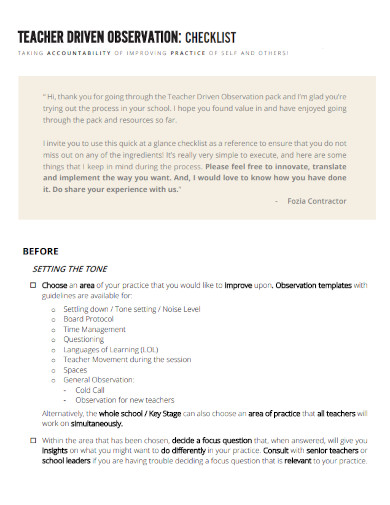
riversidelearningcenter.in
25. Developmental Lesson Observation Form
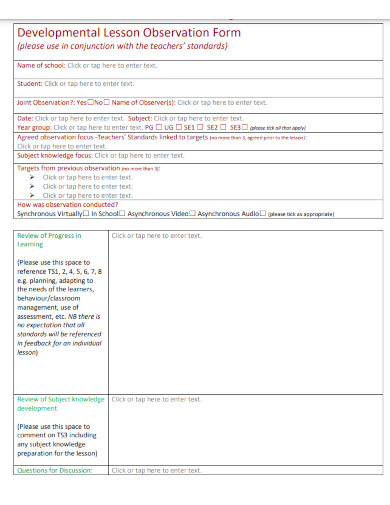
newman.ac.uk
26. Systematic Observation Documentation
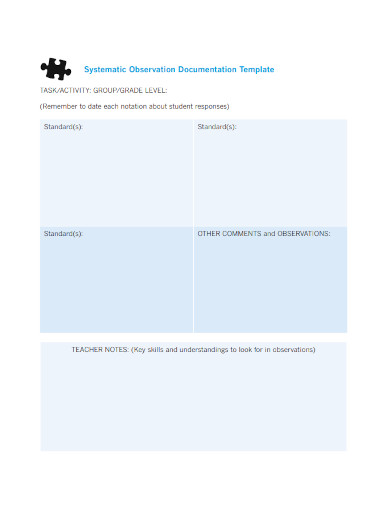
resources.corwin.com
27. Peer to Peer Classroom Observation Form
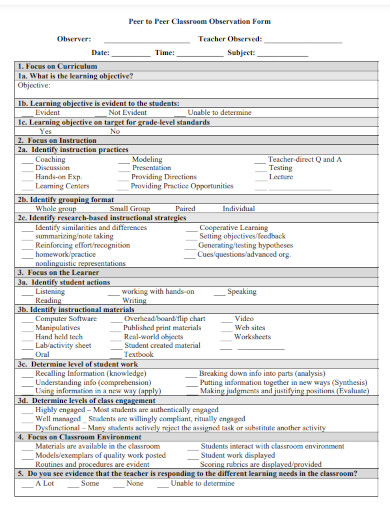
wayne.k12.ms.us
28. Student Teaching Observation Feedback Form
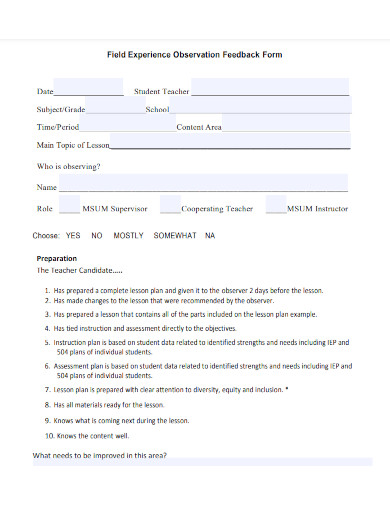
mnstate.edu
29. Student Teacher Observation Template
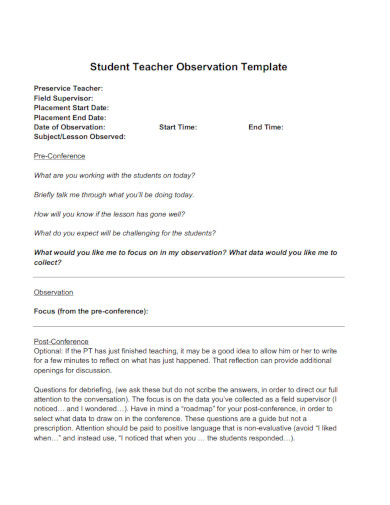
mnstate.edu
30. Classroom Observation Policy
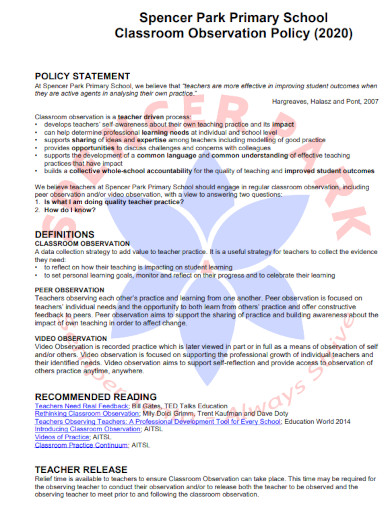
spencerparkps.wa.edu.au
31. Co-Teaching Observation Checklist

wvde.state.wv.us
32. Coaching Observation Checklist
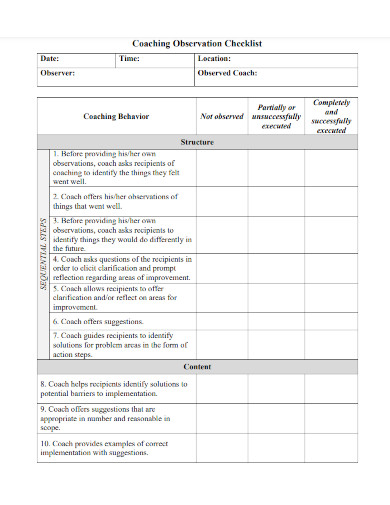
researchcollaboration.org
33. Test Observation Form
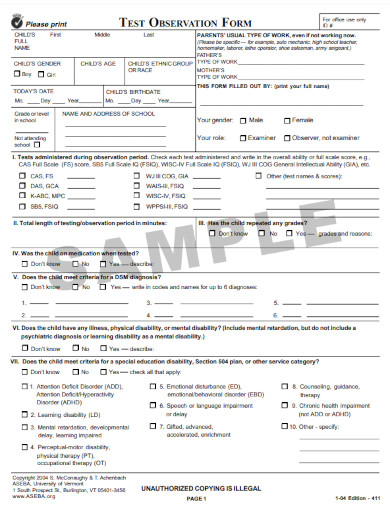
aseba.org
34. Reasonable Suspicion Observation Checklist
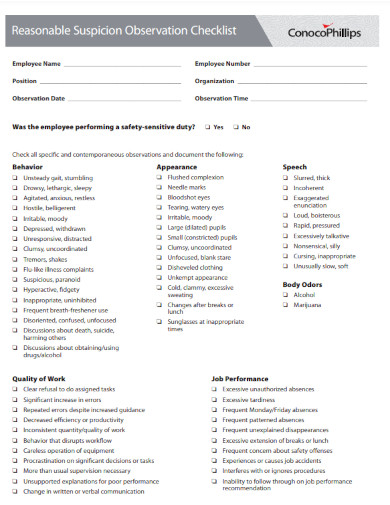
hrcpdocctr.conocophillips.com
What Is Observation
Observation is the act of obtaining information via the utilization of the senses of a person. Instruments and tools may also be used to increase or improve the information obtained via observation. Many people can learn lessons by observation, which makes this action very important in our everyday life.
How to Scientifically Observe a Specimen
There are two types of observation methods you can use to obtain information and data for your research question or thesis topic. The first method is the participative observation which requires the researcher to participate in the research and observe directly. While the second method is called naturalistic observation which requires the researcher to stay out of the way of the research and observe the specimen or phenomena with as little interference as possible.
1.) Select the Specimen You Want to Observe
Begin by choosing a specimen you want to observe. This will be highly dependent on your research topic, as the specimen can range from a small child to a wild desert coyote.
2.) Determine the Style of Observation You Want to Use
You have to pick what style of observation you want to apply in your research as this will provide structure to your observation method. If your research requires you to manipulate specific parts or factors then the observation you will need to use participative observation. But if your research requires you to sit back and conduct studies of a specimen left on its own then naturalistic observation will be used as the method of observation.
3.) If Participative Observation is Used, Plan Out your Approach
When you use participative observation as your method of observation, then you will need to plan out how you will approach your specimen. This can include various stimuli, creating controlled situations, and other ways to manipulate the variable.
4.) If Naturalistic Observation is Used, Indicate the Time Frame
When you have chosen naturalistic observation, then you will need to observe the specimen at a specific time frame. Because of this, you will need to specify a schedule and a time frame you want your observation to last.
FAQs
Why is it important to observe people or animals?
People or animals are very reactive to the environment and the happenings around them. The reason why we observe the reactions and actions of these organisms is to learn the reasons why the reaction happened. Another important reason why we need to observe people or animals is to understand a specific behavior these organisms do relative to their environment and upbringing, and whether said behavior should be emulated, prevented, contained, or minimized.
What is an observation deck?
An observation deck is a platform or structure where people can go in and observe specific objects, animals, and views from a safe distance. There are plenty of observation decks in zoos where people can stand in and view the animals from a safe distance where they will not be harmed in any way. An observation deck can also be a small isolated location in a biome to naturally observe different species of animals.
How do you apply observation qualitatively and quantitatively?
Observation is the primary method of obtaining information that the researchers will use in their research paper or thesis. If the topic of the research is qualitative then there are many methods of observation the researchers can use, these qualitative observation methods are interviews, case studies, viewing the specimen, etc. While quantitive research often entails the researcher using a quantitative observation method via surveys, questionnaires, or mass interviews.
Observation is a very important skill that incorporates the utilization and usage of the researcher’s senses. This skill is used to obtain findings to further the scientific progress of a specific niche or gap in our knowledge. In conclusion, the quality of the research or study is often dictated by the researcher’s ability to observe the phenomena they are studying.

